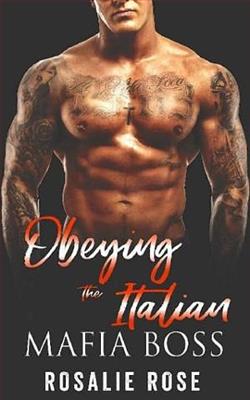Page 141 of These Summer Storms
“Oh my god,” Greta said, her voice thick with memory and emotion. “That’s right.”
Emily shook her head. “I don’t remember that.”
“Like I said,” Sam teased. “You weren’t paying attention.”
“Hey!” she defended herself. “I was little!”
“What’s your excuse now?” Alice asked.
“I can wipe the floor with you, now,” Emily replied, firing cards around the table like a Vegas dealer. She wasn’t wrong.
Three more rounds went by over two hours, these not at all silent (though Sam’s phone made an appearance in the five o’clock hour)—instead, full of memories. Surprisingly good ones. The time Sam tripped and cracked his forehead on an enormous rock, and Franklin had to take him by boat to the Wickford urgent care. The time he’d found sixteen-year-old Greta and friends two bottles deep in champagne under the oak tree, laughing so loudly they’d woken the whole house. The time Alice had accidentally picked up a shell and brought it home only to discover she’d brought home a living hermit crab, and she’dscreamed until Franklin came bursting into the tower brandishing an 1107 prototype (which he did not use on the unsuspecting animal).
It was all so normal. The kind of thing that happened after the overwhelming shock and chaotic mess of the first week of someone’s death. The kind of catharsis they’d all been longing for in their own way.
Well. Not all of them.
Not Elisabeth. As they spoke and laughed and told their stories and poured more drinks and tossed more cards, Elisabeth grew more silent, if that was such a thing. Until it seemed as though she was screaming.
And instead of remembering their training—ignoring the stony silence of their mother as she spiraled into resentment and anger—Greta checked in on her (old habits and all that). “Mom? Are you okay?”
Everyone sucked in a breath at the question, Elisabeth Storm’s purest trigger—the suggestion that she might be less than completely and utterly okay.
“Of course I am. I’m fine. I’m just shocked by how you’ve all forgotten the truth about your father.”
Alice unfroze first. The idea that she might have forgotten her father’s flaws was honestly laughable. “No one has forgotten, Mom.”
“Seems like you all have,” Elisabeth said, tossing her cards to the table and standing. “You’ve been so busy playing his little game, completing your tasks”—she looked at Greta—“or had them completed for you. But I still have mine left. Your father wanted me to tell the truth. And maybe I will.”
Sam looked to his sisters. “Fun.”
Elisabeth crossed to the bar and mixed another drink, her movements uncontrolled for the first time in—possibly as long as Alice had been alive. “Thetruthis, I am sick of hearing all the wonderful things that man did. Changing the world. So clever, so fun, so brilliant.” She opened the ice bucket. “No one noticed that it was me who held his life together. I was clever, too. Brilliant. Fun.”
A vision flashed. The photograph at the helm ofThe Lizzie,weathered and curled. Elisabeth laughing in a shower of champagne.
“But there wasn’t room for two of us to be clever and brilliant andfun. Someone had to hold it all together. The house.” She waved her glass in a wide arc, indicating the house. “And the company. And you all. And that’sthetruth.”
She slammed the lid on the ice bucket. “You all want to know how I am feeling? If I’m okay? I’m furious. Even in death, he couldn’t take anything seriously. How dare he play with my future? With yours? He left younothingif you don’t play his goddamn game, and you all seem to have forgotten thattruth.”
“No one has forgotten,” Alice said.
“Not you, maybe,” Elisabeth shot across the room. “You’re the only one who’s actually told the man to fuck off.” Everyone’s eyes were wide.
“Mom!” Sam said, unable to keep the admiration from his voice. “Language!”
Elisabeth didn’t have time for the joke. She was busy telling her truths. “Instead, it’s all card games and holding you on his lap and taking you on the boat and rescuing you from horseshoe crabs.I don’t remember any of that.”
Hermit crabs,Alice thought, the distinction somehow incredibly important in the moment, but she held her tongue.
“And the goddamn lanterns,” Elisabeth said, indicating the three on the card table, now casting more light as the afternoon gave way to unseasonably early darkness, thanks to the storm outside. “Dad’slanterns.” She scoffed. “Who do you think made sure there were enough of those lanterns on hand if we had guests? Not your father, whom you insist on canonizing. It was me.” She paused. “There’s moretruth. He liked to play the hero and get all the accolades when the power went out.”
She said it like they didn’t know that her father’s role was master of ceremonies whenever guests were in attendance, and even when they weren’t. Controlling and demanding and critical—but the leader of the Storm family circus.
And now, without him, they were all working without a net, having to learn a new way. And in many ways, none more than Elisabeth.
“Mom,” Alice said, taking to the tightrope, “we know all this. We lived it. But what’s the value in resurrecting the worst of it? He’s gone.”
“I know he’s gone!” The near shout shocked them all for how out of character it was, but Elisabeth wasn’t stopping. “He’s gone and he won’t come back, and he left you all. And he left me.” She paused. “But I’m not the villain. I’m not perfect. I have made mistakes.”















